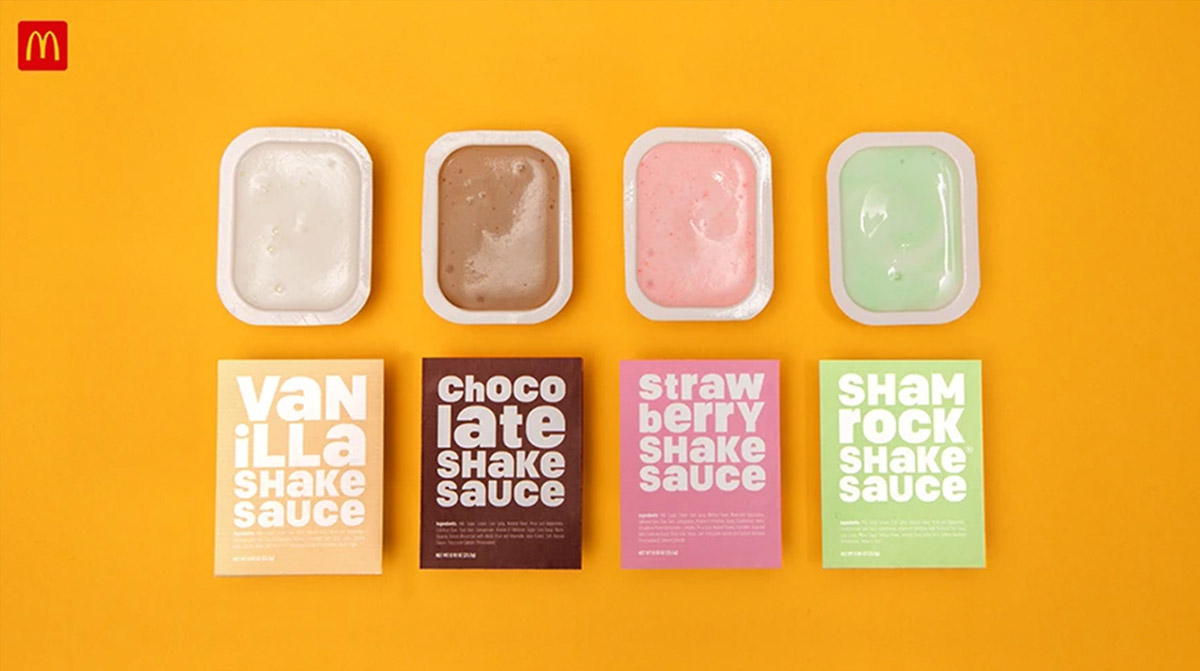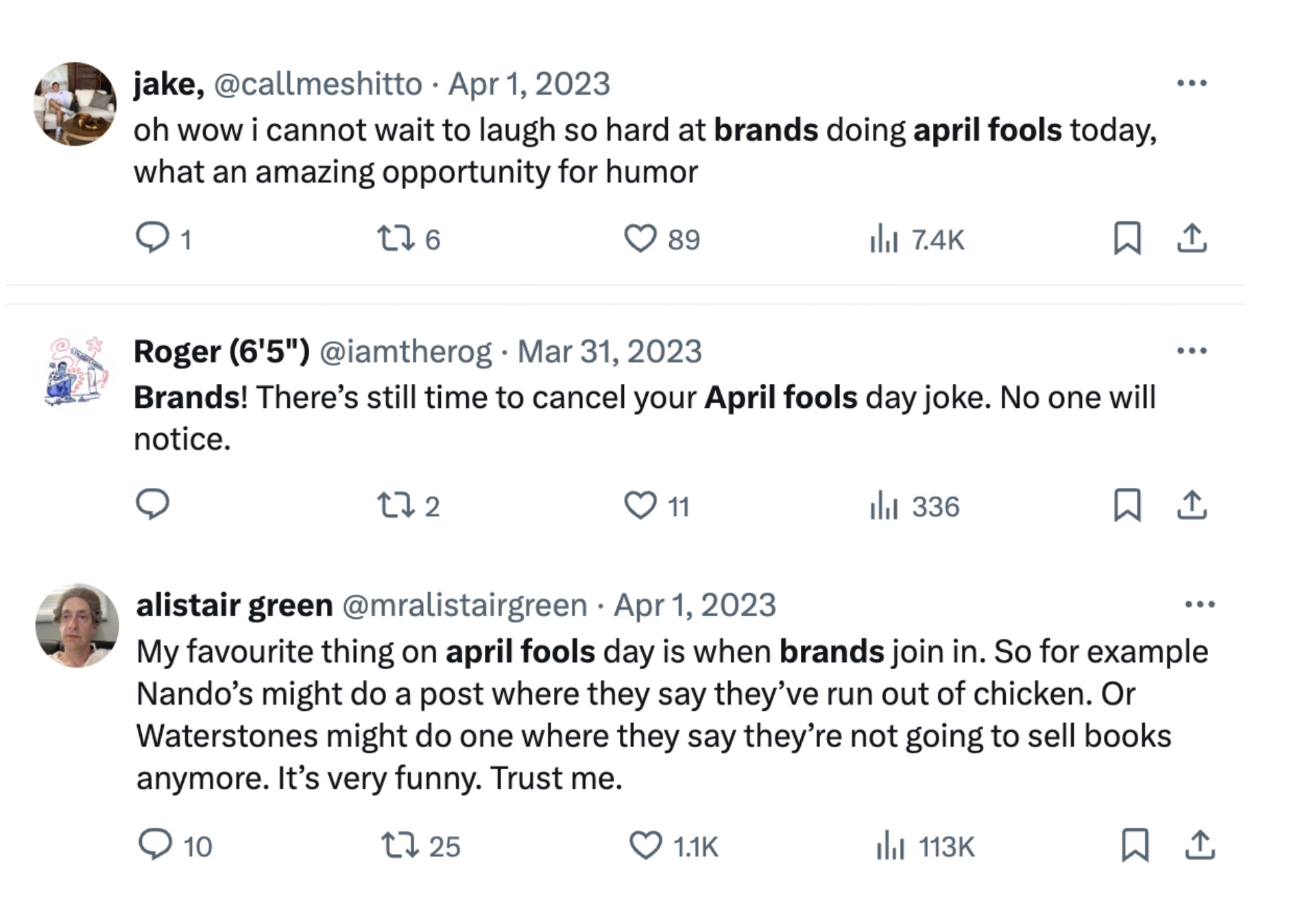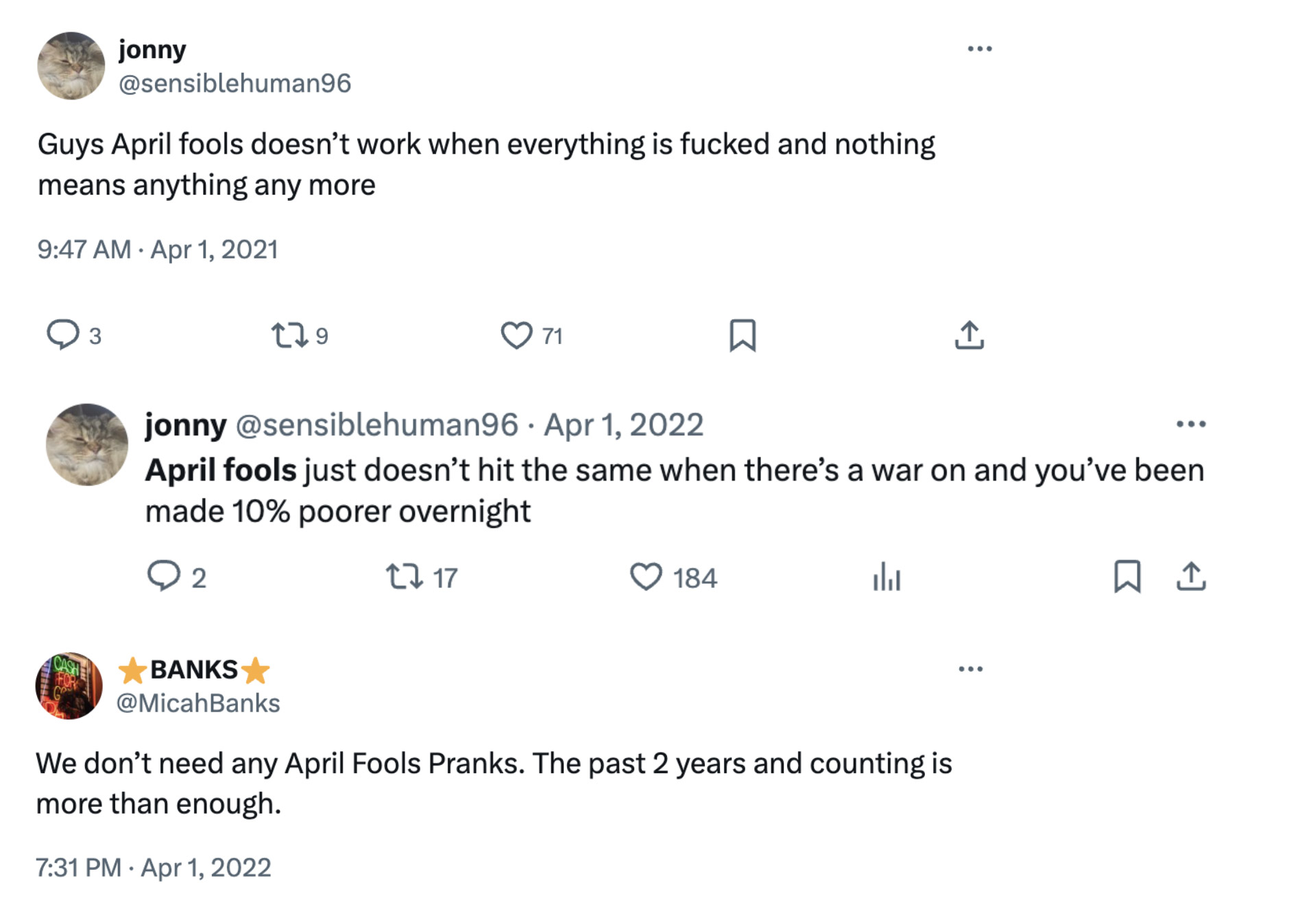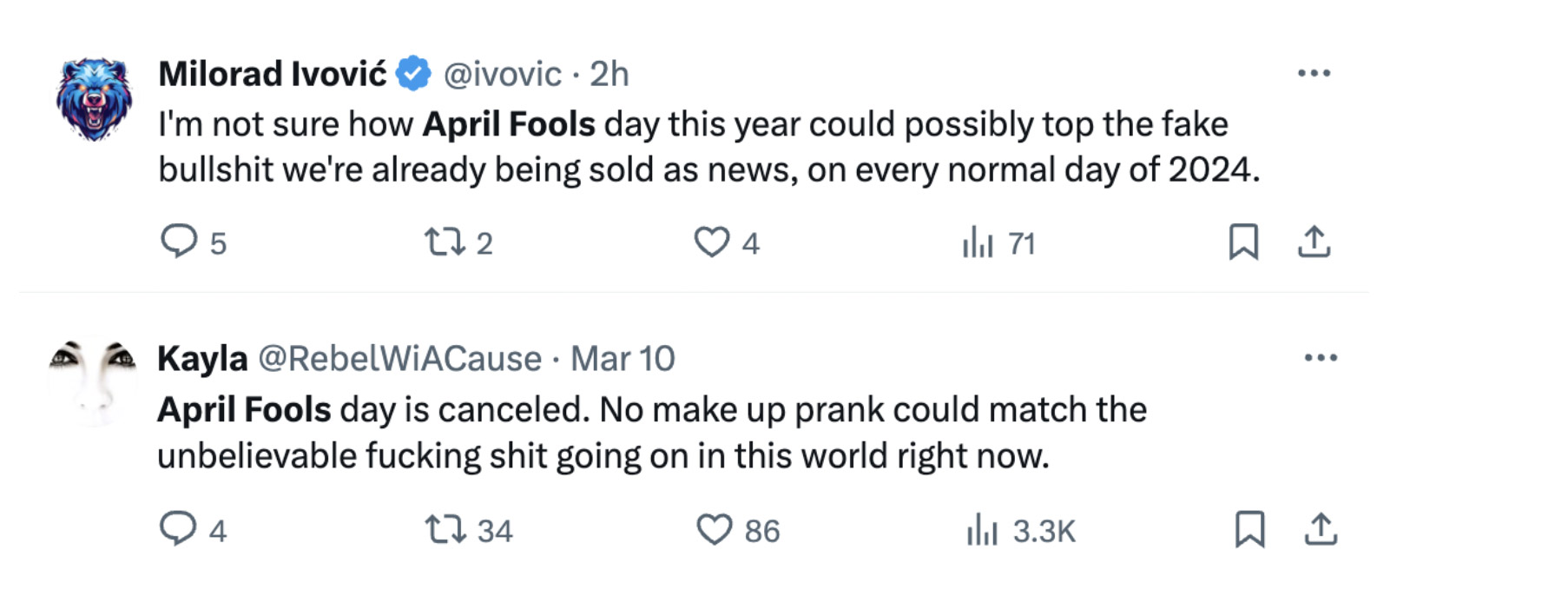
April Fools Day is often seen as an easy win for marketers. April 1st means they can have some fun with silly, fake news, taking an opportunity to be creative and engage with customers online in an informal way. The best April Fools pranks can go viral, and even become iconic. There have been plenty of examples of gags that went down well; historically there was the BBC’s spaghetti harvest in 1957 and flying penguins in 2008, and in more recent years, Tinder’s height verification which encouraged people to be more honest about their appearance while swiping, Logitech’s BS detection tool, where people loved the way it poked fun at unnecessary business jargon, and McDonald’s 2019 Milkshake Sauce Pots, a pairing of sweet and savoury that customers felt was so wrong, and yet so right. But do customers actually enjoy April Fool’s pranks? Here at Buzz Radar we we always focus on data-driven insights, on April 1st or any other day, and we wanted to see what it told us.
Do people actually enjoy April Fools jokes?
Analysing social media conversation around the subject of April Fools we found a more or less even split of positive, negative and neutral sentiments, which is far from ideal. A marketing idea that is going to annoy one-third of its audience is not going to have a decent ROI. Getting a positive result from April Fools is far from a certainty — in fact it’s a complete gamble. As a data-led service, we can never advise taking a gamble that is not backed by research. We’ve also found that the trend seems to be dying out, and people aren’t enjoying the jokes as much. During the pandemic, April Fools just felt inappropriate, and some governments even threatened fines for people spreading disinformation about COVID-19 for April 1st. At the start of the Russia-Ukraine war in 2022, many people felt that April Fools jokes were in bad taste. Today, the global political landscape remains fragile, with volatile and deeply divisive issues dominating headlines and the internet a battleground of opinions, leaving little room for lighthearted humour. And as it gets increasingly harder to tell what’s real with AI, deepfakes and other forms of fake news, it’s unsurprising that people simply aren’t entertained by brands tricking them any more. Our recommendation? Steer clear of April Fools.
When April Fools stunts backfire
When Deliveroo France sent customers fake confirmation emails for orders worth more than €450 it led to panic, with some people calling their banks to cancel the transaction, and in one case 'almost have a stroke' When Primark announced they would be selling fruit and vegetables amongst their fashion, beauty and homeware, the joke was not only accidentally shared a day early, it was seen as totally missing the mark of understanding their customers. In fact, customers took to complaining about Primark’s designs, sizes, and locations, further showing just how out of touch they saw the brand. And when Volkswagen announced several days ahead of April 1st that it was changing its name to Voltswagen in keeping with its electric vehicles, multiple media outlets reported this as true. When it was revealed to be a joke, it was instead seen as a lie, and Slate called it 'A confusing publicity stunt' that 'reminds the public of the carmaker's untrustworthiness', harking back to when the company lied to the public and deceived government regulators about diesel emissions in the 'Dieselgate' scandal.
Still want to do April Fools? Be very careful
April Fool pranks are a gamble, but gambles do sometimes pay off. If you’re confident that your audience will respond to some seasonal silliness, then, by all means, give it a shot. But be very careful.
Recommendations
Do your research and know your audience
An effective April Fool is one that shows your audience that you understand them, that you share their sense of humour and are engaged in the same memes and conversations that they are. You need to understand who your target audience is and the subjects and areas they’ll respond to. Ideally, you should never put out marketing content of any sort without knowing what your audience will respond to, but that's doubly important here, where there is so much at risk. Proper audience research can avoid poor ROI and, at worst, costly mistakes and PR disasters. If you’re interested in understanding more about your customer base and the potential audience in your marketplace, then drop us a line. It’s what we do!
Don’t attempt to genuinely fool anybody
Customers don’t like to feel duped or be made to feel foolish, which is exactly what an “April Fool” is intended to do. The clue is in the name. A negative sentiment is a very real risk. Try to pitch your gag exactly right — the best April Fools jokes are obviously untrue and absurd. The very very best ones might seem plausible for a second, but a moment's thought should banish any doubts. A good example is something like Soda Stream’s collaboration with Bed Bath and Beyond on the “Sodasoak”, a device that carbonated bathwater to create a jacuzzi. If your idea is too plausible then audiences will react in one of three ways: they will think it’s unremarkable (and thus ignore it, creating no ROI or positive sentiment), think it’s a bad idea (in which case you better hope they realise it’s a joke at some point) or, perhaps worse, be excited about it, only to be disappointed later. All three, in their own way, are a disastrous outcome. As we said, it’s a gamble.
Publish early on April 1st and come clean at midday
Starting your April Fools campaign in March risks your customers missing the joke entirely, so make sure all pranking is done on the morning of April 1st. Traditionally, April Fools expire at midday, so don’t push it! Fessing up is part of the fun.
Align your content with your goals and values
We recently blogged about CeraVe’s collaboration with Michael Cera for a spoof ad, aired during the Superbowl. Part of the reason this funny idea worked so well, is that the company ultimately came clean in a way that underlines the core values of the company and product. Every aspect of marketing should always be aligned with a business's values and goals, and that’s just as true of April Fools.
Do no harm, be sensitive to real-world problems and stay away from controversial issues.
Stick to ridiculous products, flavours, and technologically-impossible tools that have little repercussions and don’t relate to anything serious or political. We live in divisive and volatile times —the effects of a pandemic are still being felt, there is a cost of living crisis in many countries with people living in poverty, and several conflicts are happening around the world which may directly impact your audience. Disappointing or annoying your customers is undesirable but offending, angering or upsetting them is a disaster, and for most will be a calamity you will not be able to come back from. That customer is now lost. Keep it light, keep it silly, keep it fun. If in any doubt whatsoever, simply don’t. If a major, serious news story breaks that morning then down tools and stop. Customers will not enjoy your joke if they’re mourning a beloved public figure or are shocked by a catastrophe.
Next moves
With just over a week to go until April 1st, you’ll want to act now if you’re serious about taking on the challenge. So much can go wrong, that putting your April Fools campaign together at the last minute is a recipe for disaster. Drop us a line today and we can help you analyse your audience and provide you with hard data to guide your decision making, ensuring that you don’t end up as the butt of the joke.



Patrick Charlton Published on March 21, 2024 1:27 pm

